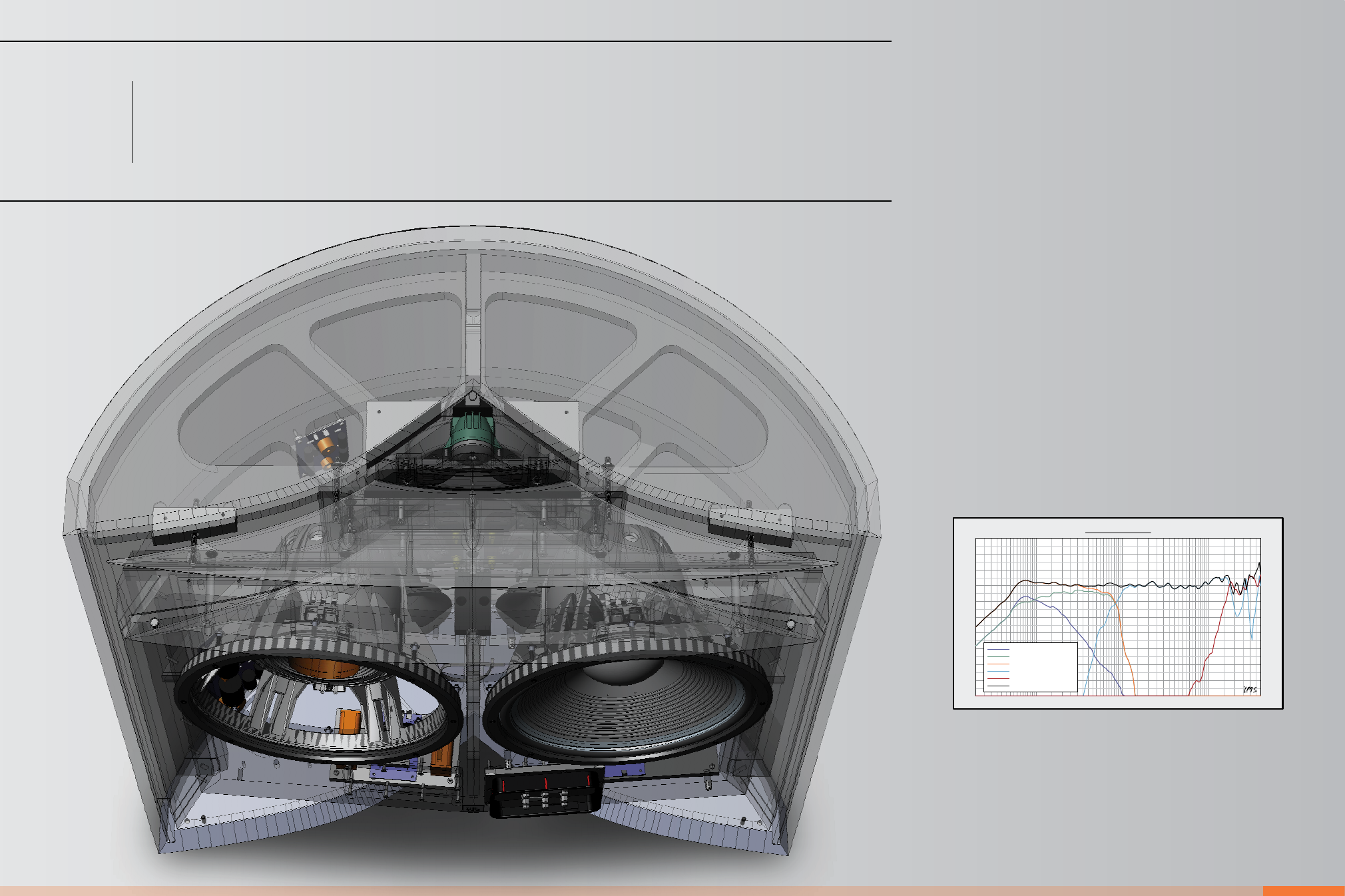Project everest, A triumph in acoustics and technology – JBL Synthesis Everest DD67000 User Manual
Page 8

15
Project everest
a triumPh in acoustics
anD technoLogy
2
This chapter describes the primary features and components of the Project Everest
DD65000 and DD67000 loudspeaker systems.
The basic system configuration is what JBL historically has referred to as an “augmented
two-way”. In the 1950s and 1960s, JBL primarily built two-way systems with a 12-inch or
15-inch (305mm or 380mm) woofer crossed over to a large-format compression driver/
horn combination. Some of the systems would be “augmented” by a UHF device, usually
the 075 ring radiator which would operate above 8kHz. These systems would have only a
single crossover point in the middle of the audio range, to minimize any sonic degradation
caused by the dividing network.
The DD65000 and DD67000 both have a single midrange crossover point – the
DD65000 at 750Hz and the DD67000 at 850Hz – blending one 1501 woofer to the 476
compression driver and horn combination. The 045 UHF driver is brought in at 20kHz to
cover an octave and a half of ultrasonic frequencies. A second 1501 woofer operates in
the bass frequency range from below 30Hz to around 150Hz, where it is rolled off at a
gradual 6dB/octave. This first-order slope ensures proper amplitude and phase summing
between the two woofers over their entire operating range. Both woofers operate below
150Hz, but only one of them extends up to the midrange crossover point. This is done
to achieve proper directivity control throughout the entire woofer operating range, while
delivering powerful and extended low-frequency performance. Above the midrange
crossover point, the HF compression driver and horn combination operates unassisted,
all the way to 20kHz (see graph, below).
20Hz
50
100
200
500
1k
2k
5k
10k
20k
40k
dBSPL
60
65
70
75
80
85
90
95
100
105
110
SPL vs Freq
DD67000
DD67000 LF1
DD67000 LF2
DD67000 LF Combined
DD67000 HF
DD67000 UHF
On-axis response of the DD67000 system and of each
transducer through its crossover network (2.83V @ 1m)